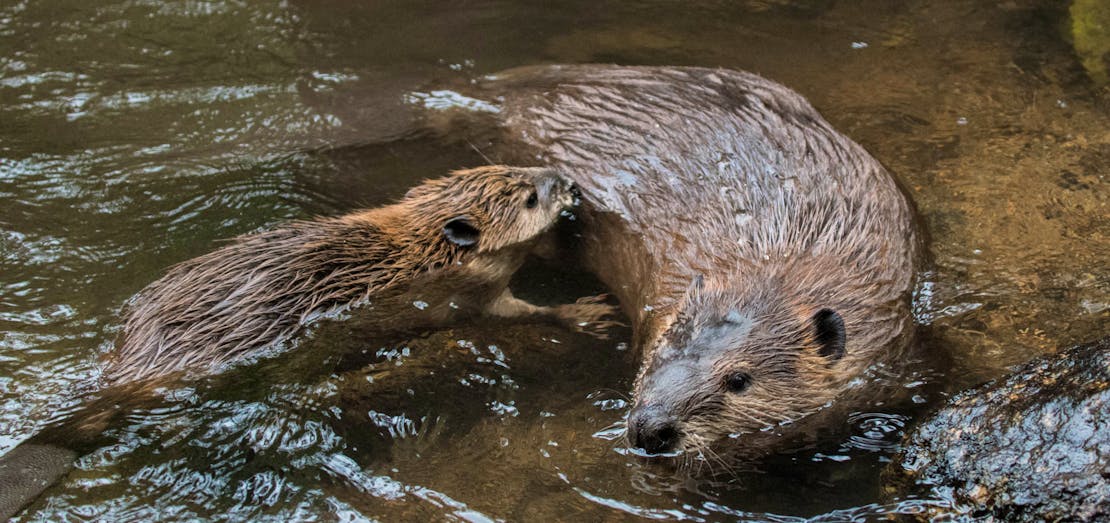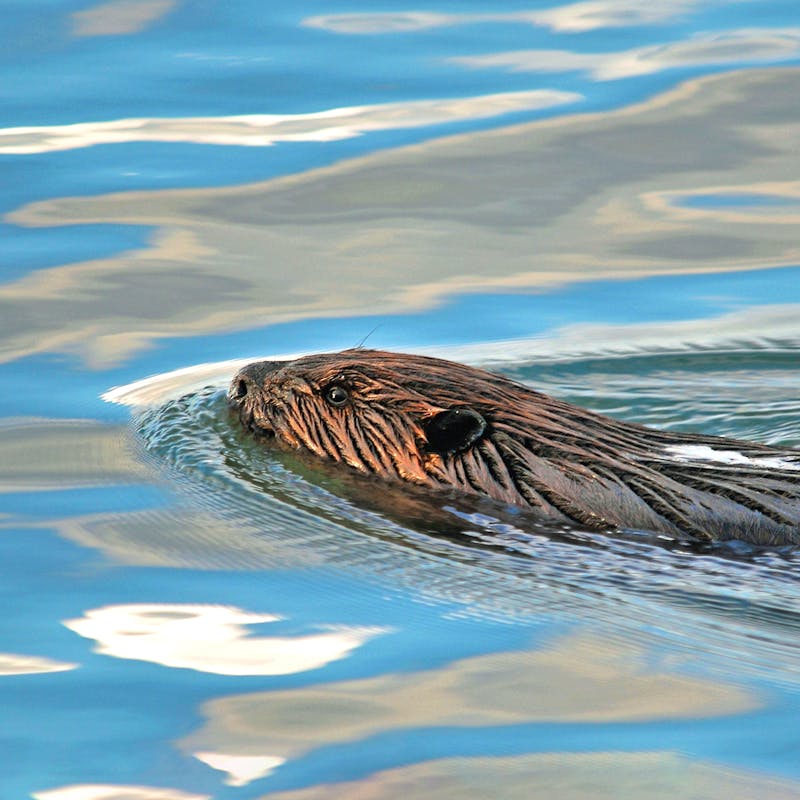Coexistence, in the context of wildlife conservation, is the philosophy where humans and wildlife can share a landscape such that both can benefit from it. However, fostering coexistence requires a change in human behavior, attitudes and practices, and such change must be encouraged and incentivized through policies. With Oregon and Washington wrapping up their 2022 short legislative session earlier this month, Defenders is taking a critical look at some of the wildlife policies that we are engaged in, and how these policies promote or impede coexistence.
Oregon’s 2022 legislative session lasted only a month, but coexistence emerged as a recurring theme. Urban development—including roadways and human settlements—is a modification of the landscape that only benefits people and poses a serious threat to wildlife who need to travel long distances in search of new territory, new mates, food and to escape harsh weather conditions and respond to climate change impacts.
With only five wildlife crossings in the entire state, Oregon is lacking in the ways it promotes connectivity and coexistence. This legislative session marked a shift in the status quo when it, for the very first time, allocated $7 million dollars to the Oregon Department of Transportation (ODOT) to build wildlife crossings. The funding will now make Oregon competitive in accessing even more from the $350 million allocated in the federal Infrastructure Investment and Jobs Act (IIJA) that Congress recently passed. The $7 million in HB 4130 also mandates that ODOT consult with Oregon Dept of Fish and Wildlife (ODFW) and their statewide habitat connecting mapping assessment in prioritizing projects.
Leave it to Beavers
Another land management policy promoting coexistence came through the historic Private Forest Accord (PFA) negotiation between the industry and conservation community. Facilitated by Governor Kate Brown, PFA came about after years of conflict between the two sectors. This complex negotiation has multi-agency implications, and one noteworthy change is beaver management on private lands. Beavers are classified as “predators” in Oregon and are managed by the legislature. ODFW does not have to monitor populations, set harvest limits or actively mitigate any conflicts. The PFA changed that—it mandates ODFW monitor populations on private lands, set harvest limits, ban trapping on large private forested lands, develop voluntary relocation programs for landowners to have access to, and prioritize non-lethal tools. This is a significant and hopeful shift in beaver management in the Beaver State.
Problems for Predators
While we saw progress in coexistence policies, we also witnessed some challenging conversations on coexistence with carnivores. We saw one bill add $1 million to Oregon’s Wolf Compensation Fund and another bill establish predator damage control districts in certain counties, which would have allowed more funding and prioritization of lethal control of animals described as “predators.” Defenders recognizes compensation as an effective tool to build social acceptance for carnivores, but Oregon’s Wolf Compensation Fund is riddled with challenges in accountability, transparency and standardization of payments. Defenders’ goal is to reform the program to effectively serve producers who need such resources. With strong advocacy, we successfully prevented the two bills from passing this legislative session. However, they reminded us of the long path ahead in developing a shared understanding of coexistence both at the legislature and on the ground.
Wins and Losses for Salmon and Orcas
Similarly, Washington’s 2022 legislative session was a sprint. Several opportunities to promote coexistence with the state’s lifeblood, salmon, were introduced. Defenders’ Northwest Program is devoted to recovering southern resident orca as a priority and that means advocating for progressive policies and actions related to salmon, their primary prey. Disappointingly though, legislative wins were few despite our hard push, as two progressive bills, the Lorraine Loomis Act requested by Governor Inslee and HB1117 did not pass. Both bills could have been gamechangers for the endangered salmon stocks by promoting riparian and other habitat improvements at scale, establishing “net ecological gain” on public lands and incorporating this species recovery into the growth management act for at least western Washington. We will keep pushing hard for these types of forward-looking recovery actions for salmon and orca next session.
Fortunately, significant gains for salmon were achieved in the 2022 Budget. Between the $17 billion, 16-year Transportation Budget that Democrats passed and the addition of approximately $5 billion appropriated via a 2022 Supplemental Budget package for this biennium, millions are targeted for accelerating improved fish passage, culvert repairs, stormwater treatment and essential monitoring, all benefitting salmon. An important habitat restoration project concerning the Duckabush Estuary was partially funded at $25 million, positioning it well for a federal match and completion in the near term. Also, a key study was financed that aims to assess the feasibility of replacing the current services of the four lower Snake River dams without unduly impacting local communities and businesses. Currently these dams contribute to the decline of salmon, and the dams’ removals are no doubt an optimal solution to recovering these endangered fish stocks.
Learning to Live with Wolves
Beyond salmon, we saw progress on a few other timely wildlife and habitat opportunities that ensure wildlife can coexist and thrive on human-dominated landscapes. This includes an additional $300,000 to support range riding as a nonlethal tool to promote wolf-human-livestock coexistence. Tangentially related to wolf conservation, ungulate (wolf prey) monitoring was funded for northeast Washington. In truth, data gaps on elk should be filled in many other parts of the state as well, especially as Washington wolves start to slowly expand into former range and because a healthy prey base is integral wolf recovery and coexistence. Importantly, $800,000 in funds to support the prosecution of environmental crimes pertaining to fish and wildlife passed. This new initiative will mean poaching and other crimes won’t go unanswered and the hard work to develop and implement species recovery won’t be shamefully eroded by such illegal activities.
Saving Sea Otters
Lastly, we are excited to see the passage of SB5619, which allocates funds to the Department of Natural Resources for the development of a kelp and eelgrass conservation plan—these ecosystems are key to some of Washington’s treasured biodiversity, including one of our priority species, the lovable sea otter.
Changing perception, practices and ultimately behavior to promote coexistence between people and wildlife is a long, windy road, and one that is impossible to navigate without adequate policy and resource support. A thoughtfully developed policy can go a long way in supporting actions on the ground, and wildlife conservation is no exception. The 2022 legislative session in the Pacific Northwest showed us glimmers of progress in developing mutual respect for coexistence principles in some areas, as well as the path ahead in others.













